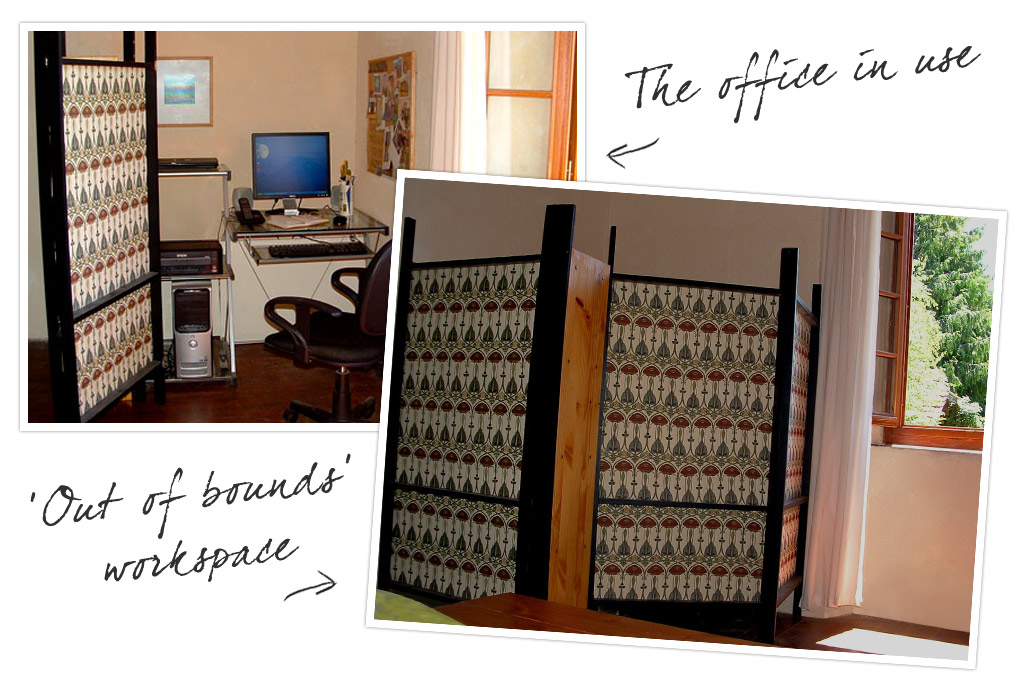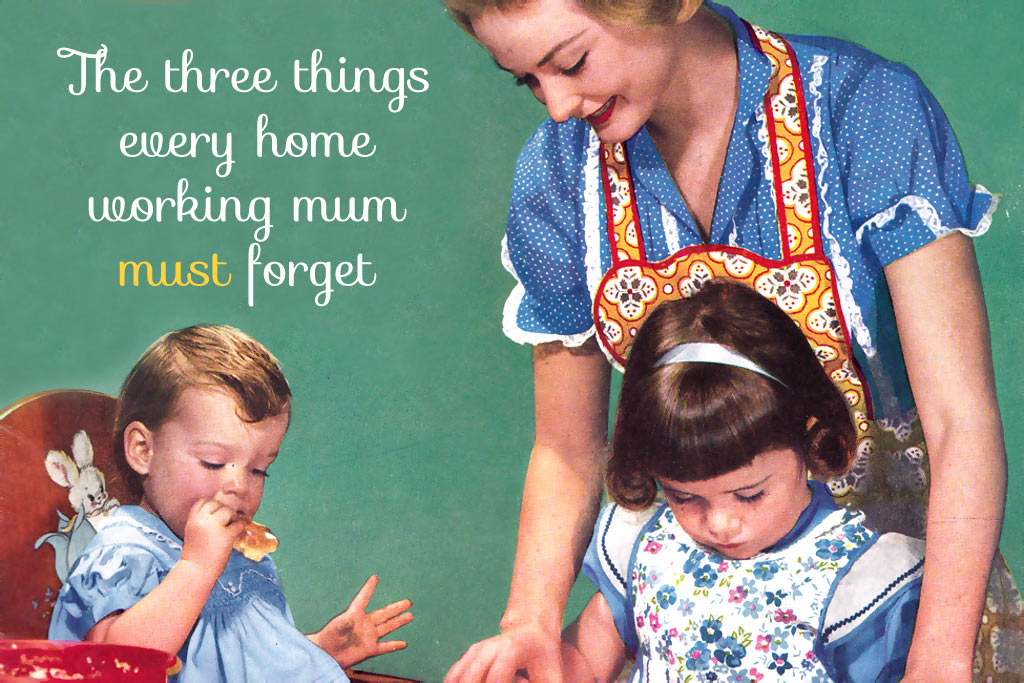How to work from home with kids
For many mums, working, freelancing or running a business from home is the perfect scenario – but for others it just doesn’t work. Find out how you can ascertain if it’s right from you, and how to make a success of it.
Childcare expert and former nanny Kristen Harding from My Family Care has seen plenty of successful, and not-so-successful homeworking arrangements over the past few years. Now she shares her advice for making it work with us.
Is homeworking right for you?
It’s 1pm, your toddler’s having a nap, all the children are fed and you’ve picked at their leftovers – time to put your feet up. Or not, if you’ve opted to work from home!
As the definition of flexible working broadens, many people are being granted permission to work from home, allowing them more flexibility and a solution to the ever growing costs of childcare. And an ever-growing army of mums are planning to start home businesses or go freelance.
But while working from home as you watch your children works well for some people, it’s not ideal for everyone. So before you leap into committing yourself to working from home, it’s a good idea to give it a trial run and find out if:
- You work well from home – not everyone does.
- The ages and dispositions of your children are conducive to working from home – not all of them are.
- You are productive – again, not everyone is productive away from their desk, but some people can be more so.
For many employers, the idea of working a strict 9 to 5 has changed, and they are looking for output volumes rather than ‘face time’ (not the iPhone app, but the amount of time you spend in front of your employer).
There will be stages in your child’s development that allow you more time to focus on the tasks at hand, and other stages that they need much more of your time and attention. In the long run, you will have to decide if combining work and childcare works for you and then find a way to implement it.
How to work from home with kids – some suggestions
From my experience working with mums and dads who combine work with childcare, I have a few suggestions.
Schedule your time
Remember you are doing two jobs, so schedule things accordingly. If you have small children around tasks will take longer to complete, so set realistic deadlines to avoid disappointing your boss and letting down your team or customers.
Just as you have set hours in an office, designate specific hours in the day that you are going to dedicate to work, and give yourself built-in breaks depending on the age and needs of your child.
It may take your child a short time to get used to a routine and it may take you even longer – but it’s important to develop a working routine that you can stick to. Think about when they need to be fed, when they need a nap or when they are energetic, and build your day around that schedule.
For example, arrange telephone calls during nap times and block out feeding time if they are on solids. If you’re breastfeeding, you might find you’re proficient at multi-tasking and you can tackle your inbox while feeding – or you might decide that it’s you and baby time.
If you’re working on something that needs total concentration, it might mean scheduling in a period of time in the evenings when you can focus and your partner is home to handle any child-related emergencies. And when it comes to your child, remember that spending time entertaining themselves is not a bad thing – in fact, it can be a very good thing.
All of these decisions are up to you; no two people will feel exactly the same. So step back, assess the situation and determine what works for you.
Find childcare
If you work or run a business from home, there will inevitably be times when you’ll need to rely on childcare. And one great place to start looking is your parent networks. So if you don’t have one, it’s time to start building!
Trading children for a few hours is a brilliant way of securing an afternoon of quiet time to focus on the task at hand. The other parent will be happy to help, especially if they know they can call on you when they need a hand. This is easier as your children get older. If they are still quite young, you might need to find someone flexible enough to come to your home.
Know who you can call in an emergency and who you need to make plans with in advance, and ALWAYS reciprocate – you don’t want the relationships to be one-sided.
If you need more organised childcare, you might want to consider an au pair who is in the home with you – attending to your child while you work – or a family member who takes your child a few hours a day.
Even if you have family who can step in in an emergency, have a back-up plan in place for when you have a last minute meeting, or an outstanding deadline. Things don’t always run smoothly but if you prepare for worst case scenarios, then every day is a lot less bumpy! Have Emergency Chidcare in your SOS contact list.
Be honest
Be honest with yourself and your manager, colleagues and clients. Once you’ve got a schedule that works, explain it to your boss or line manager and let them know that you’ve put time and effort into finding a way for this to work for both of you.
If you’ve scheduled a call and your child wakes up, don’t try to pretend you’re in the office – tell them you’re working from home and your child has woken up early. Try to carry on with the call, however if the situation becomes too much ask to rearrange it. It will be more productive for everyone.
When your child is old enough, explain to them that you’re working, or that you need to make a telephone call. Give them a task and explain that you’ll engage with them once the call is over.
A word of advice – this won’t happen right away and you need to remember to go back to them every time you’re off the phone. Essentially, you’re training them to understand the times when you are available and when they need to entertain themselves.
Don’t forget your conversations at home, and be honest about how you are feeling. Are you coping, or do you need help? What would to help lighten the load? Remember only you know how you’re managing – don’t expect others to be able to read your mind.
Remove the roadblocks
Make sure you have an area of your home that you can set up as an office. As your children get older, it will be easier to explain that you are working if they associate you working with a particular location, even if it is a corner of the sitting room.
Setting up your office in a location where you can glance up at the room and observe your child will also mean you can work with the knowledge that you’ve got an eye on the situation.
Before you start working from home, think long and hard about everything you’ll need. How do you access your company server? Have you set up a VPN to your office? Do you have the right equipment, do you need to provide it or does your company? Is your software upgraded? Will you have an office mobile or are you expected to use your home telephone? And if you’re freelancing or starting a home business, make sure you have all the equipment you need ready.
The more you’ve thought of in advance, the more likely it will be smooth sailing when the day comes.
How to entertain your children while you’re working
It’s much easier to work uninterrupted if your children are absorbed in an activity. Every child is different and you’ll need to find things that are of interest to your child to keep them entertained. For example, if your child likes trains then find activities that include trains, and if they’ve declared they are too old for a doll, don’t expect their Barbies to entertain them for a long period!
When finding activities that your child can do self-sufficiently, think about the amount of supervision they need. Activities like painting are not ideal when you don’t have a watchful eye on the artist.
Generally you want to think about activities that take a longer period of time, so that you can focus for longer. And you want to get them focused on one activity at a time – if you put all their toys in front of them at the same time, they will be bored in no time. But slowly introduce toys or activities as the day progresses, and you’ll hold their attention for longer.
Here are just a few ideas of ways you can keep your children happy while you work:
- Drawing – whether you find print outs on the internet that they can colour in, or you challenge them to copy the greats. Ask them to do drawings for specific people and take a break to walk to the post office and post them.
- Building – this can range from wooden blocks to Lego or arts and crafts. Set challenges, such as ‘how tall can you build the tower?’ or ‘can you build a house with windows this week?’
- Space – build a fort together or let them set up their own office – this is a good way for them to have a place to go when you are in your own office. Let them decorate it, and make sure they are aware it is their space.
- Puzzles – whether they are old enough for 1,000 pieces or just 10, or prefer word searches or matching pairs, puzzles have a way of taking over an afternoon! Just remember doing the same puzzle over and over again can get boring for an older child so surprise them with something new every now and again.
- Challenges – if you have older children who are internet-savvy, set them challenges and get them to help you where they can. You might set them a task that helps you – such as counting columns on a spreadsheet, or adding numbers – you may have to double check, but feeling like they’re your helper will keep them busy!
- TV/Movies – don’t be afraid to use this as a treat when you need a solid period of quiet. Be careful not to fall into the trap of using the TV as your babysitter though.
- Games – these are easier if you have more than one child as they can play together, or you might find games on electronic devices. Again, we suggest that you limit the amount of time spent on these and save them for when you really need silence.
More advice for successful homeworking
Working, freelancing or running a business from home isn’t right for everyone, but if you can find a way to make it work for you then you could find you have the best of all worlds.
To help you make a success of working from home, here are a few more articles that may help:
- How to make a convincing case to your employer for homeworking.
- Three things every homeworking mum must forget.
- How to set boundaries when you work from home.
- How to cope with distractions when you work from home.
- Five ideas for businesses you can start at home.
- How to make time to work from home.
Kristen Harding was a nanny for eight years, taking care of five different families. Today she uses her experiences to help raise awareness of childcare choices through her role with My Family Care and their sister companies.










